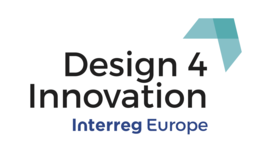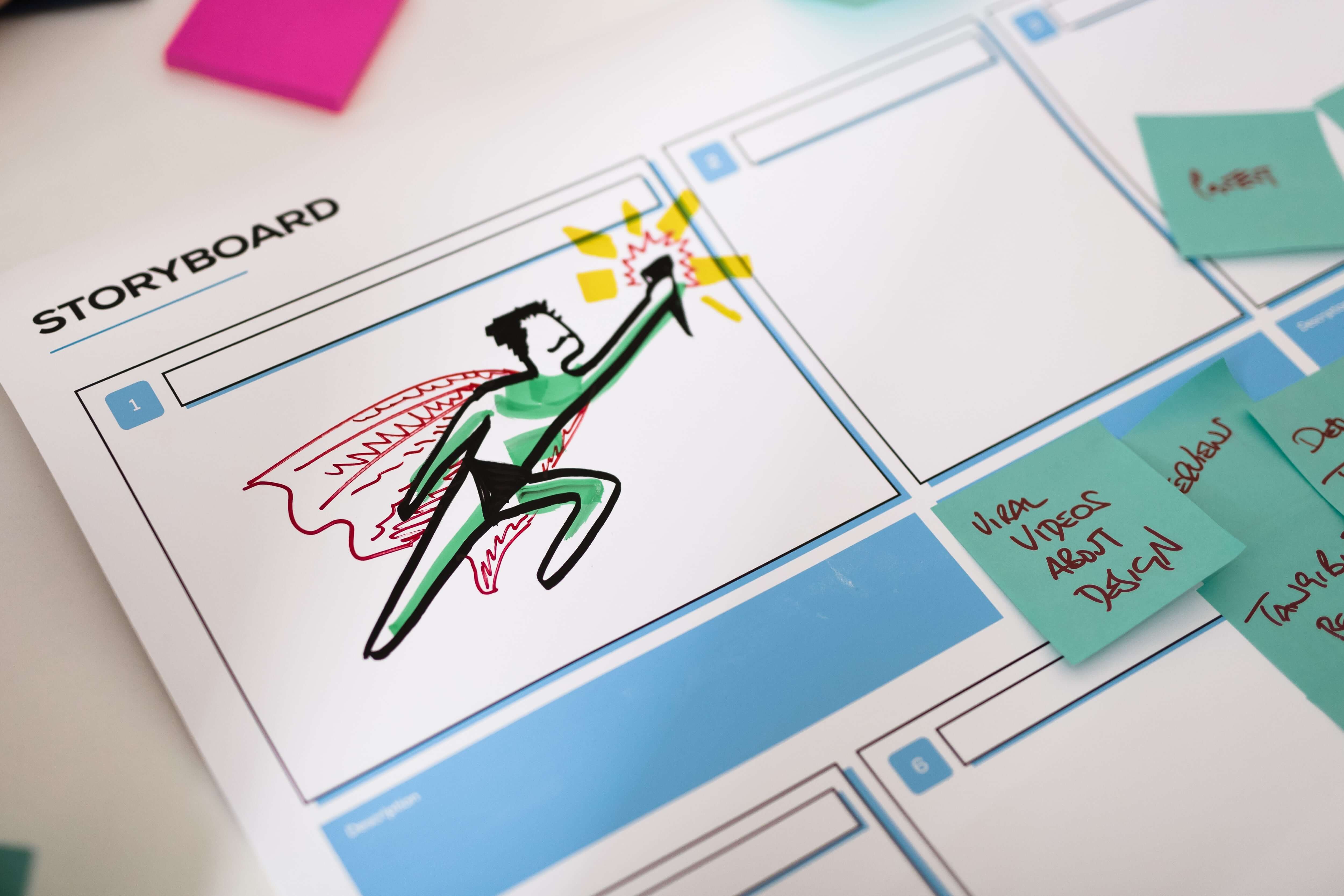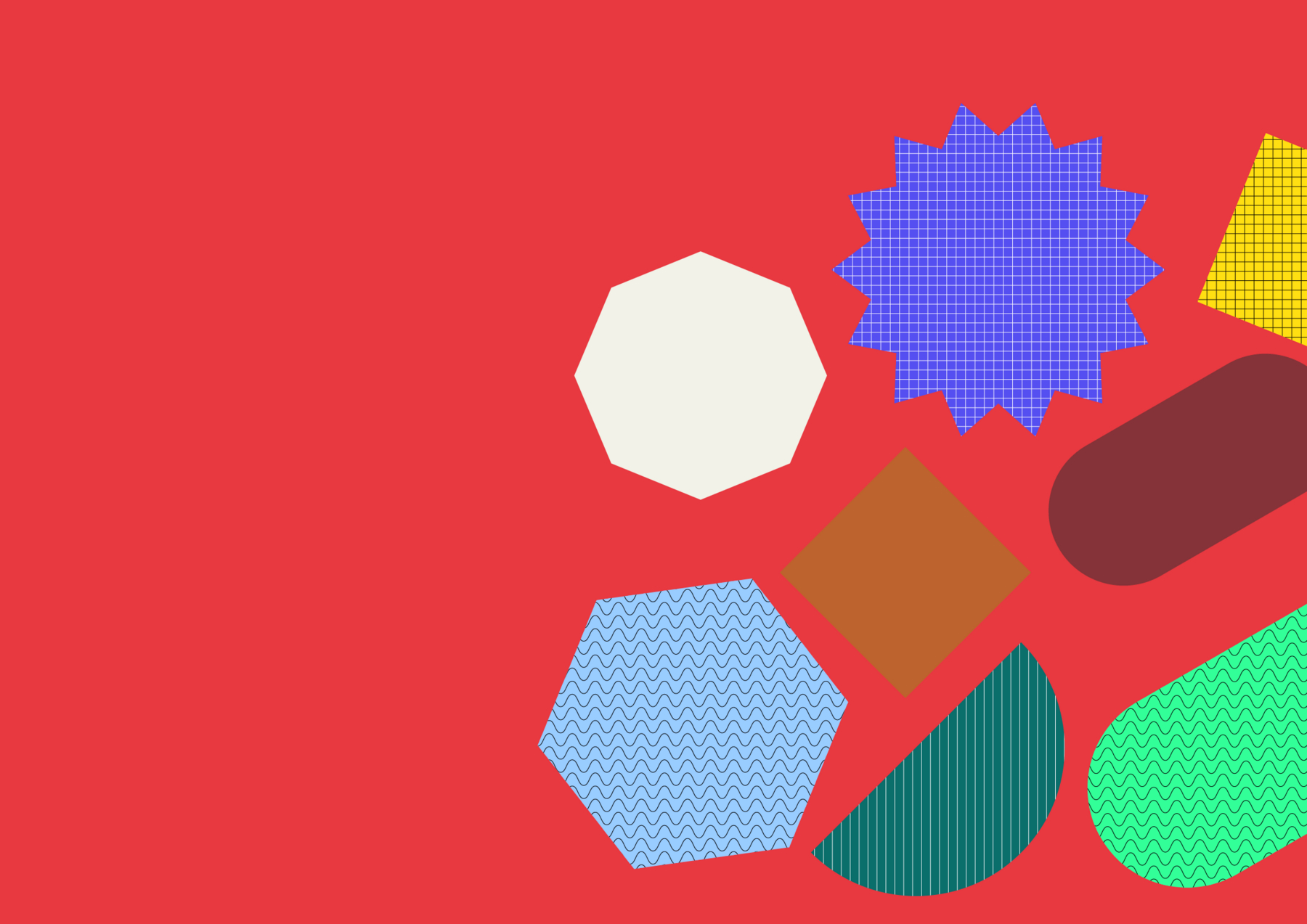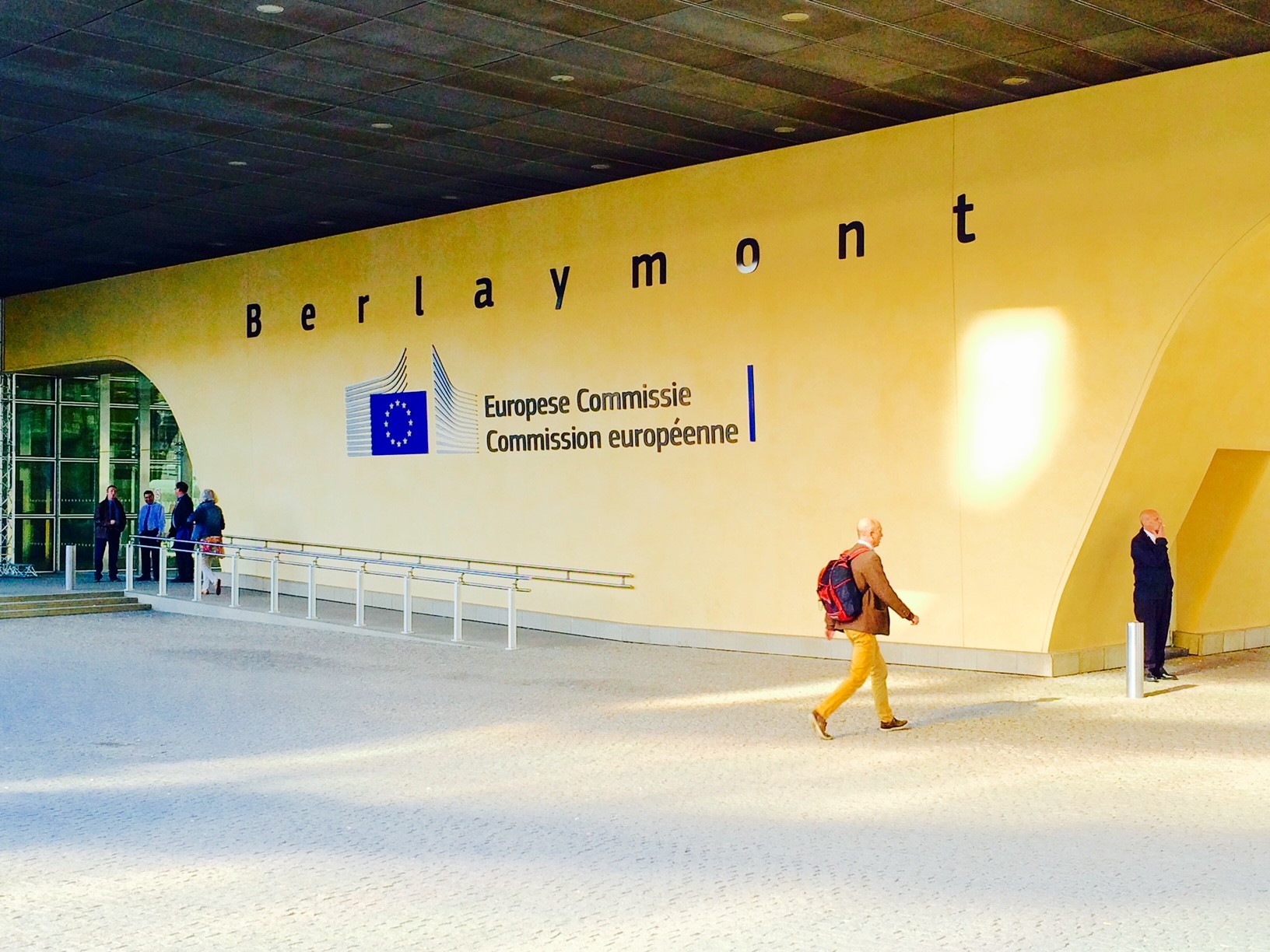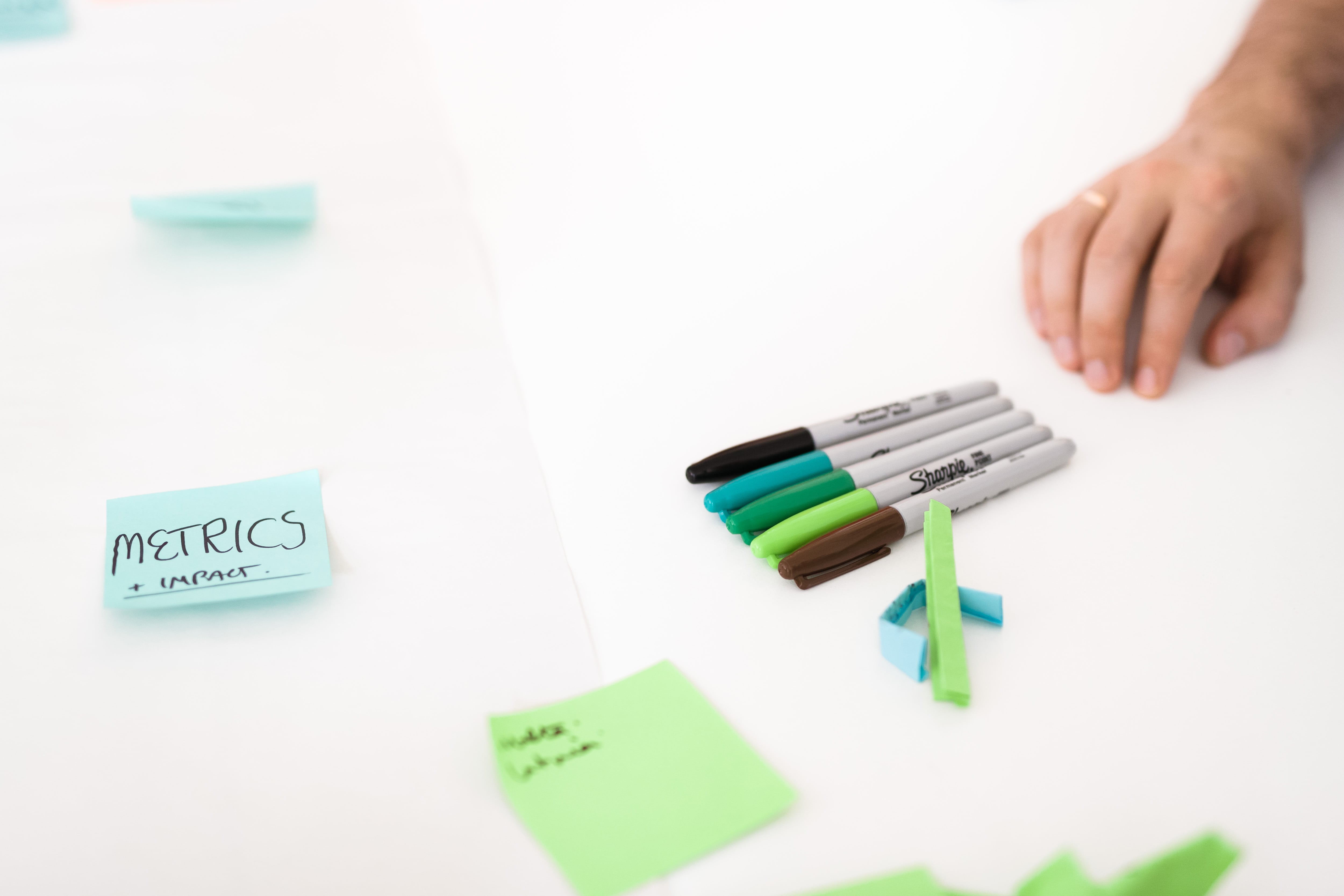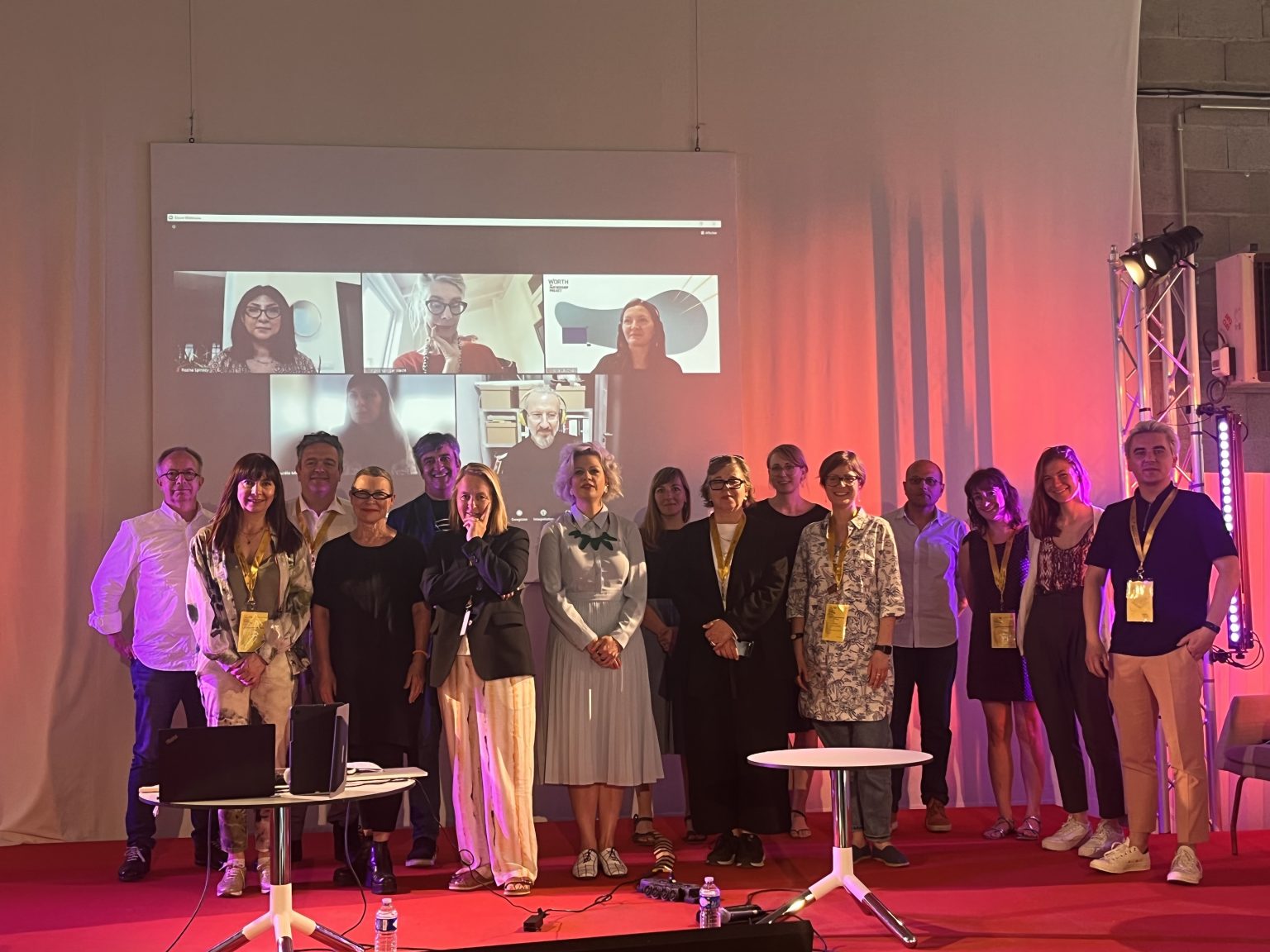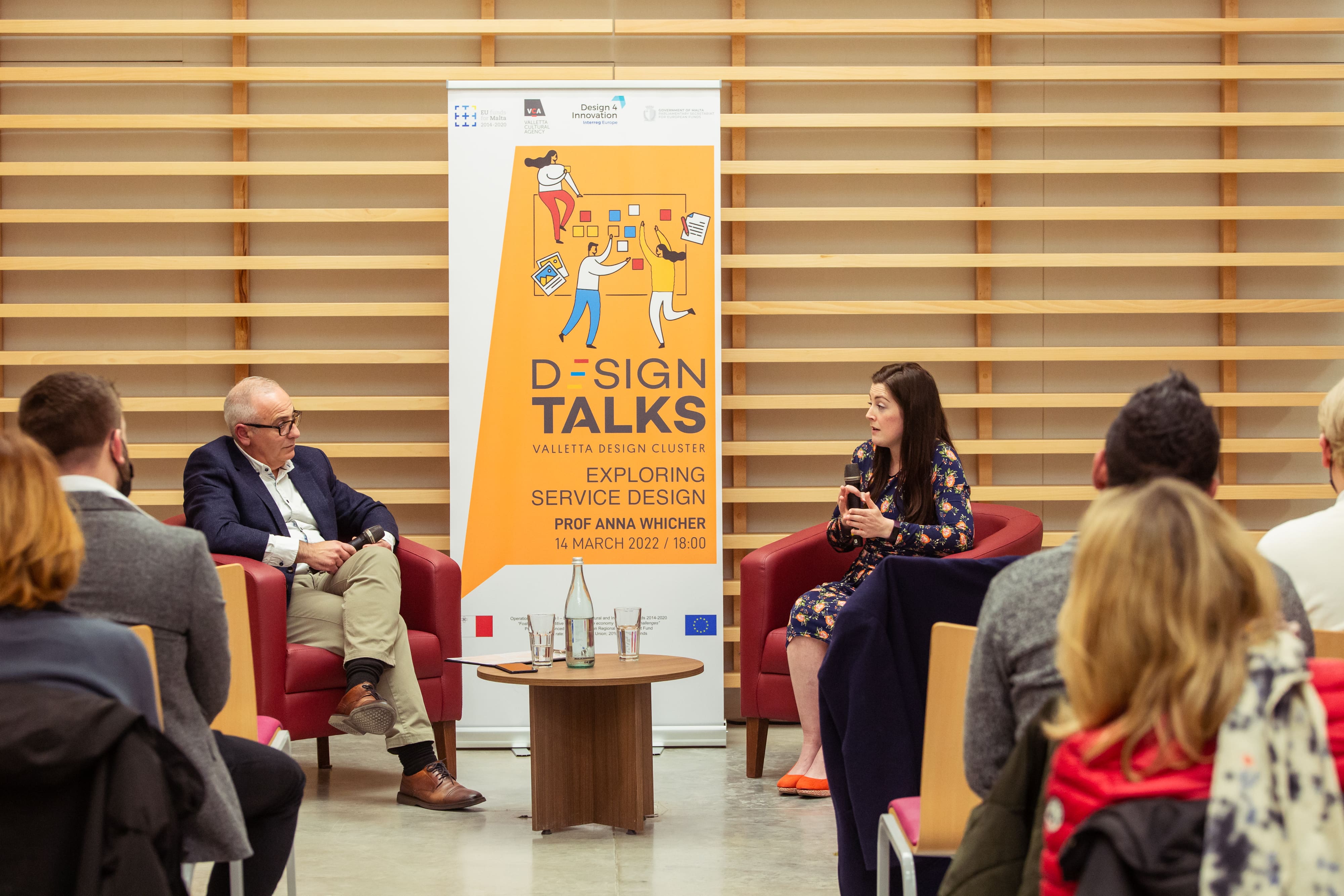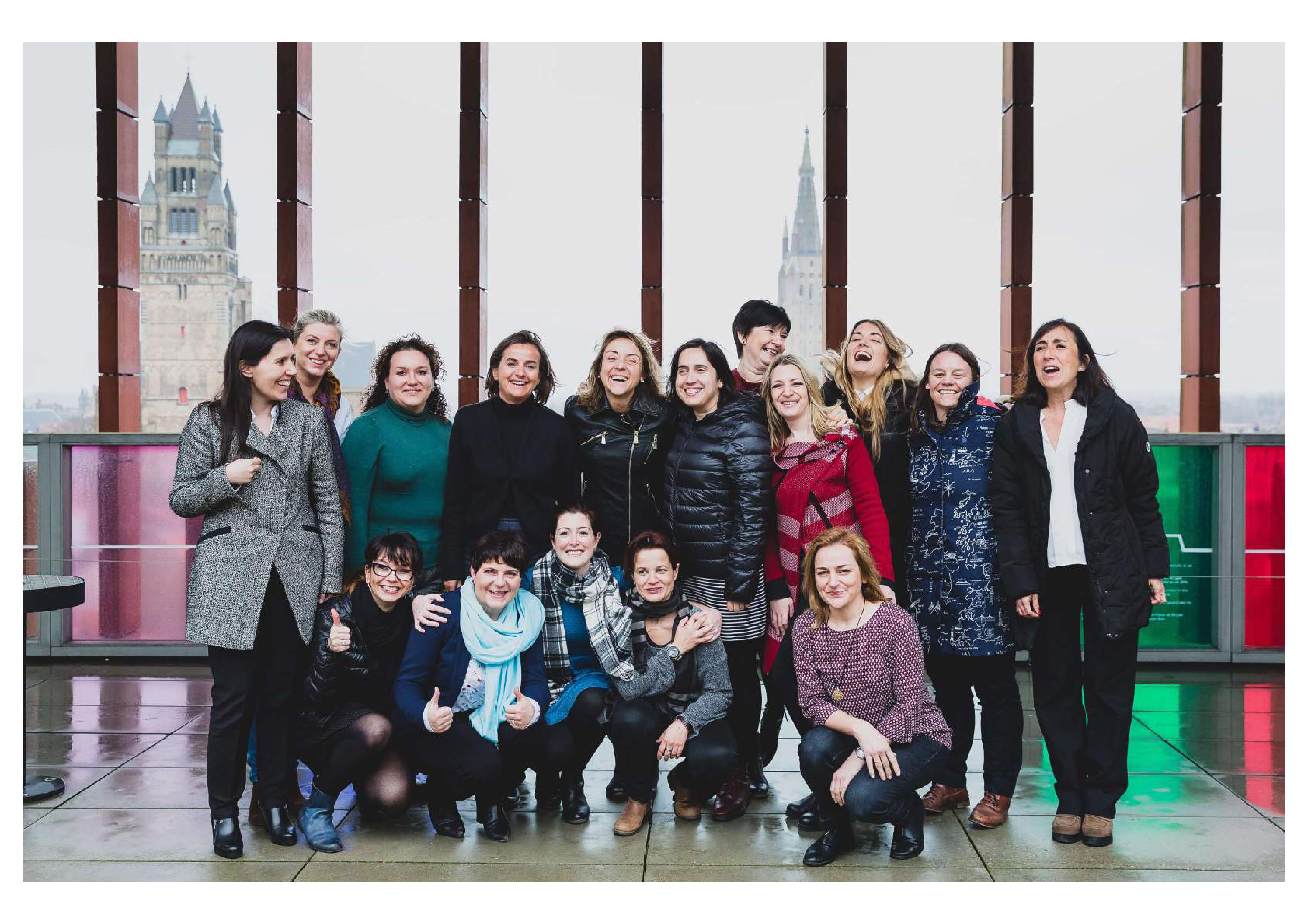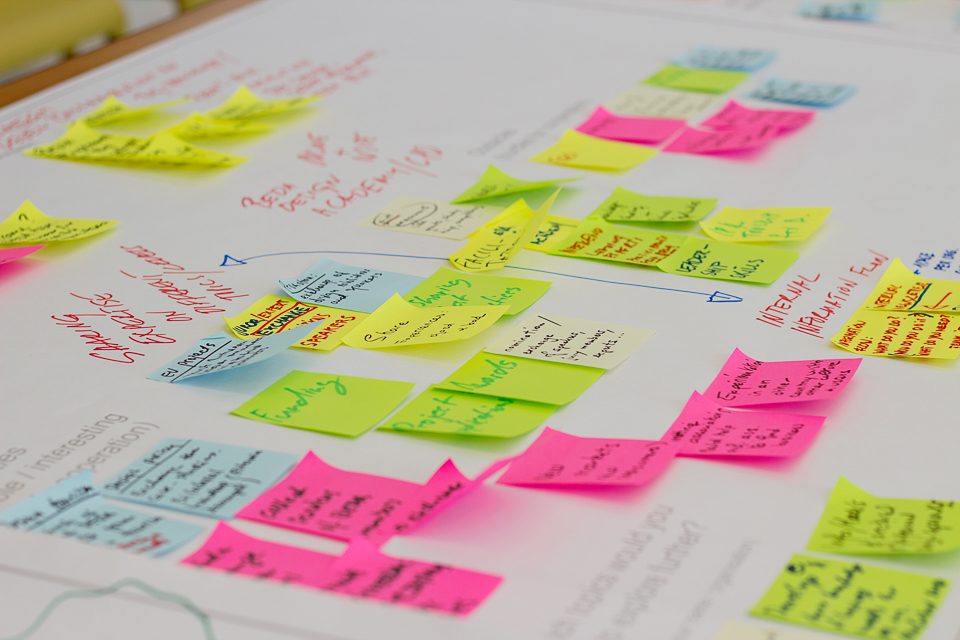EU Industry Days is an initiative to engage with big and small business from priority sectors across Europe to collaborate and inspire. Through the event, the European Commission also seeks to gain input from the industry and civil society for future policy making. The first edition took place in February 2017, and was followed by a launch of a renewed industrial policy strategy that brought together all existing and new horizontal and sector-specific initiatives into a comprehensive strategy in September 2017.
This year at EU Industry Days, BEDA (Bureau of European Design Association) held a session on ‘Intangible value creation through design’. Dr Anna Whicher, Design4Innovation Project Manager, facilitated an interactive workshop with 58 representatives from industry, government and research organisations from across Europe. Building on Design4Innovation approach and experience from the regions, the workshop focused on co-creating a list of policy actions for design to achieve the EU’s policy priorities for innovation, sustainability, the creative industries, healthcare and digital agendas.

The plenary session was opened by the Commission President, Jean-Claude Junker, who focused on the Commission’s economic ambitions until 2027.
"We need to redesign our trade for the global economy."
Jean-Claude Juncker,
European Commission President
We cannot say if the EC President was thinking about design in the way that we think about design – as a tool to bring innovation to the market and support the private and public sectors to better respond to user needs – but that is what we hope for. He also outlined the challenges of bridging the gap between R&D and the market focusing on the lack of digital skills in Europe.
“I want to see a European country toping the innovation leader boards.”
Kristalina Georgieva, Interim President of the World Bank Group
Europe is languishing behind Asia and America and only a radical innovation policy will do anything to change this. The Interim President of the World Bank Group, Kristalina Georgieva, further highlighted how digital platforms are transforming well-established firms in the banking sector, hotel industry and transport services – referring to innovators like Monzo, Airbnb and Uber. Intriguingly many of the fastest growing companies around the world, including Airbnb, were co-founded by designers and use design strategically to differentiate their offers in terms of both the business models and user experience. The European Commission is showing some interest in design through initiatives such as ‘Action-plan for design-driven innovation’, but might not yet be fully aware of the impact design can have.

Design4Innovation aims to help eight European regions enhance their innovativeness and competitiveness through increased use of design in SMEs. Through collaboration with BEDA whose mission is for design to be embraced as a driver of growth and prosperity across Europe, we hope to achieve broader and more sustainable impact.
The workshop kicked off with introductions by Bart Ahsmann BEDA President and Paivi Tahkokallio, BEDA President-elect outlining the journey to BEDA integrating design into Innovation Union and the subsequent Action Plan for Design-driven Innovation. Dr Anna Whicher highlighted current trends in design action plans in Europe. BEDA is seeking to reinvigorate discussions on design policy at European, national, regional and city levels. The workshop at EU Industry Days was part of this ambition. Based on a card sorting exercises with compilation of design policy actions across a number of thematic areas the participants explored various actions and prioritised them according to higher priority, lower priority and shorter term, longer-term. The emerging priorities from this session were:
- Implementing support programmes to foster collaboration between designers and enterprises.
- Using design to simplify funding application procedures and improve access to financing.
- Using design to instigate a dialogue on the future of the European labour market.
- Reviewing public procurement processes to ensure access to innovative design solutions.
- Creating a legal framework for design that strengthens understanding use.
- Establishing multi-disciplinary innovation labs, using design methods to co-design better public services and policies.
- Conducting research on the design sector, design use in Europe and the economic impact of design.
- Increasing design literacy in early childhood education, primary and secondary schools.
- Applying design methods in multidisciplinary research and innovation programmes to address societal challenges.
We will engage with BEDA to combine the results of this workshop with our research and Design4Innovation work done in the regions.
